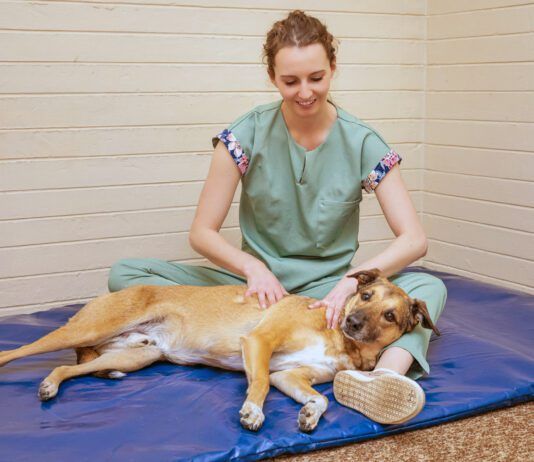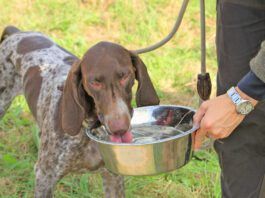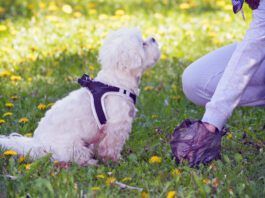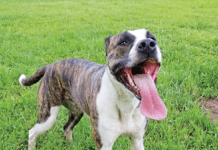Canine Constipation
Constipation seems like it should be a straightforward medical problem, but this is far from the case! Constipation occurs when there is difficulty or...
Confidence Lost
When Woody (my three-year-old pit bull-mix) was a tiny puppy, just another one in a litter of nine that I was fostering for my...
How to Get the Tick Out
It’s creepy enough that there are billions of these tiny insects living in the woods and fields, just waiting to latch onto your dog...
About Mast Cell Tumors in Dogs
Mast cell tumors (MCTs) are the most common form of malignant skin cancer that occurs in dogs, accounting for about 14 to 21 percent...
An Ill-Advised Weight-Loss Program: Bowser’s Story
Bowser was a sweet, lovable, and very fat Beagle. Instead of weighing a healthy 30 pounds, he was a whopping 50. Bowser’s veterinarian examined...
Avoiding Heat Stroke in Dogs
Summer is a great time to be a dog owner. Long warm days mean plenty of outdoor activities like swimming, hiking, and playing. It’s...
What is Myasthenia Gravis in Dogs?
Myasthenia gravis in dogs is a relatively rare neuromuscular disease in which there is a breakdown in the transmission of signals between nerves and...
Addison’s Disease in Dogs
Addison’s disease in dogs occurs when the adrenal glands or brain axis are not functioning properly. It can be divided into two categories: primary and secondary.
Marijuana Toxicity in Dogs
The symptoms of marijuana toxicity will vary based on the dog, but general symptoms in dogs include depression, vomiting, urinary incontinence, ataxia (wobbliness), tremors, stupor, and bradycardia (slow heart rate). However, Dr. Wismer explains about 25% of dogs exposed to cannabis will become stimulated instead of depressed and show agitation and high heart rate. Dogs with severe marijuana toxicity can develop low blood pressure and coma.
Megaesophagus in Dogs: A Mega Problem?
The esophagus is a muscular, distensible organ that carries food from the mouth to the stomach. Megaesophagus is a common disorder in dogs that describes slow motility with resultant dilation of the esophagus. As a result of hypomotility, food will pool in the esophagus and stretch it. The stretching leads to damage to the nerves. This worsens hypomotility - a vicious cycle.
Tea Tree Oil Diffusers Are Toxic to Dogs
While some essential oils can benefit dogs, others are extremely dangerous - especially when used in their concentrated form. Tea tree oil demands extra caution around dogs, cats and small children. Although exposure to any essential oil is generally most concentrated when it directly contacts skin, tea tree oil diffusers and liquid potpourri present specific health concerns to dogs. These items release essential oils like tea tree continually into the air, risking exposure by inhalation.
Double TPLO Surgery for Dogs
As we learned in our independent research and from meeting with multiple veterinary surgeons, the TPLO surgery has become the gold-standard treatment for this kind of knee injury, especially in very large, strong, young, athletic dogs. While waiting for Sirius growth plates to close, we saw firsthand how conservative management worked - and then didnt. We were looking for a treatment option that gave Sirius the best chance at the kind of fun and normal life she deserved, one that would allow her to return to the activities and sports training that she loved.


















